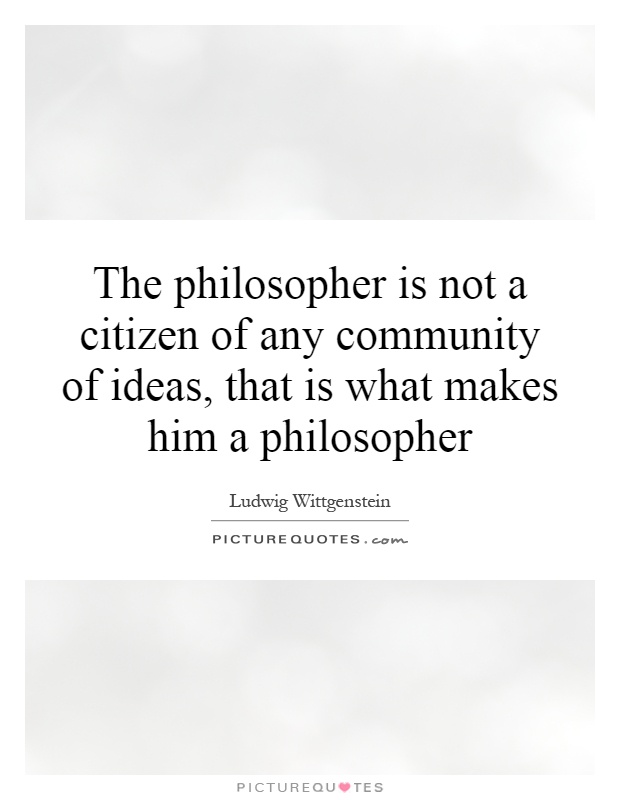The philosopher is not a citizen of any community of ideas, that is what makes him a philosopher

The philosopher is not a citizen of any community of ideas, that is what makes him a philosopher
Ludwig Wittgenstein, one of the most influential philosophers of the 20th century, is often associated with the idea that the philosopher is not a citizen of any community of ideas. This notion is central to Wittgenstein's philosophy, particularly in his later work, where he explores the limits of language and the nature of philosophical inquiry.Wittgenstein believed that philosophy was not a body of knowledge or a set of doctrines, but rather a method of clarification and analysis. He famously stated that "philosophy is not a theory but an activity," emphasizing the importance of examining the language we use to express our thoughts and ideas. In this sense, the philosopher is not bound by any particular set of beliefs or ideologies, but rather engages in a process of questioning and reflection that transcends any specific community of ideas.
For Wittgenstein, the philosopher's role is to challenge the assumptions and presuppositions that underlie our everyday language and thought. By examining the ways in which we use language to communicate and express ourselves, the philosopher can uncover the hidden complexities and ambiguities that lie at the heart of our understanding of the world. In this sense, the philosopher is not beholden to any particular community of ideas, but rather stands apart as a critical observer and interpreter of language and meaning.
Wittgenstein's emphasis on the importance of language and communication in philosophy is evident in his later work, particularly in his investigations into the nature of language games and the limits of language. He argued that language is not a fixed and stable system of symbols, but rather a dynamic and evolving form of communication that is shaped by our social and cultural practices. By examining the ways in which language is used in different contexts and situations, the philosopher can gain insight into the ways in which meaning is constructed and conveyed.












 Friendship Quotes
Friendship Quotes Love Quotes
Love Quotes Life Quotes
Life Quotes Funny Quotes
Funny Quotes Motivational Quotes
Motivational Quotes Inspirational Quotes
Inspirational Quotes